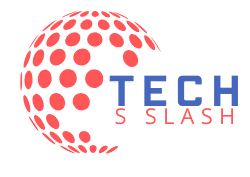A New Era in Gaming: Are We Ready?
Picture this: You’re immersed in a hyper-realistic virtual world, competing with players across the globe, and all of it is happening seamlessly on your smartphone. No bulky consoles, no lag, no massive downloads. Sounds futuristic? Not anymore.
The gaming industry is undergoing a massive transformation, and BagelTechNews is here to explore the future of gaming software. With advancements in cloud computing, AI, and immersive tech, gaming software is being reimagined from the ground up. But what does this mean for developers, businesses, and players?
Gaming Software: Then vs. Now
Gaming software used to be a static, disk-bound piece of code confined to physical devices. Updates were few and far between, and cross-platform play was a dream.
Fast forward to 2025: Games are dynamic, cloud-connected ecosystems that evolve in real time. From AI-driven NPCs to real-time data sync across devices, software development has taken a bold leap into the future.
Let’s break down what’s driving this shift and how it benefits developers, gamers, and the industry as a whole.
Why Cloud Technology Is Powering the Future
Cloud technology is no longer just for file storage or enterprise software. It’s now a cornerstone of next-gen gaming.
Main Benefits of Cloud-Based Gaming Software
-
Data Security
Gaming companies handle a lot of sensitive data: payment info, user profiles, chat logs, etc. Cloud-based platforms often offer more secure, encrypted storage solutions with 24/7 monitoring and automatic backups.
-
Remote Access
Gone are the days when your gaming experience was tied to one device. Thanks to cloud infrastructure, you can now play AAA games on your smartphone, tablet, or browser without downloads or performance drops.
-
Disaster Recovery
Game crashes and data corruption can be devastating. Cloud solutions allow for automated backups and quick recovery, so players don’t lose progress and companies don’t lose users.
-
Cost-Effectiveness
Instead of building massive server farms or upgrading local hardware, developers can rent computing power from cloud services. This drastically reduces initial setup costs.
-
Scalability
Multiplayer games can go viral overnight. Cloud systems allow instant scalability – no downtime, no crashes, just more players joining the fun.
-
Real-Time Collaboration
Game development teams spread across different countries can work together in real time, using cloud tools to collaborate on code, assets, and testing.
Cloud Gaming vs Traditional Gaming Software
| Feature | Traditional Software | Cloud-Based Software |
| Installation | Required | Not needed |
| Platform Dependency | High | Low (cross-device) |
| Updates | Manual | Automatic & real-time |
| Cost to Maintain | High | Scalable/Pay-as-you-go |
| Accessibility | Limited | Global & Instant |
| Performance | Device-limited | Cloud-optimized |
Real-World Examples: Gaming Businesses Leveraging the Cloud
-
Xbox Cloud Gaming (formerly Project xCloud)
Microsoft’s Xbox Cloud Gaming lets players stream console-quality games to any device. This reduces the need for expensive hardware and opens new markets.
-
NVIDIA GeForce NOW
This service allows players to stream PC games from the cloud without owning a gaming PC. It’s a game-changer (literally) for casual and hardcore gamers alike.
-
Unity & Unreal Engine Collaboration
These popular game engines have embraced cloud tools for collaboration and asset management, enabling developers to work faster and smarter.
2025 Gaming Trends to Watch
- AI-driven personal gaming assistants
- Hyper-realistic environments powered by real-time rendering
- Voice-activated commands and controls
- Blockchain-based ownership of digital assets (NFTs)
- Cross-platform and cross-reality gameplay (AR/VR + mobile/PC)
Common Pitfalls in Cloud Gaming Development
- Neglecting Latency
Gamers are sensitive to lag. If cloud infrastructure isn’t optimized for location and speed, player experience suffers.
- Overlooking Data Compliance
Gaming companies operating globally must comply with local data laws (like GDPR in Europe). Ignoring this can lead to hefty fines.
- Poor Game Optimization
Games must be optimized to run well on various devices and connections. Failure here means a frustrating experience for end users.
FAQs
Q1: What is cloud gaming?
Cloud gaming is a technology that allows users to play video games streamed from remote servers instead of installing them locally on a device.
Q2: Is cloud gaming the future?
Absolutely. With advancements in 5G, edge computing, and hardware-agnostic software, cloud gaming is poised to dominate the next decade.
Q3: Is cloud gaming more expensive?
Not necessarily. While some services are subscription-based, users save on hardware and game purchases, often making it more affordable long-term.
Conclusion: Leveling Up for the Future
Gaming software is no longer a one-size-fits-all solution. The rise of cloud technology has opened the doors to unprecedented creativity, accessibility, and performance.
At BagelTechNews, we believe that developers, gamers, and investors must stay informed and agile to keep up with these fast-paced changes. Whether you’re a studio founder, indie dev, or just someone who loves a good storyline, the future is now – and it’s in the cloud.
Visit the homepage for the latest updates

